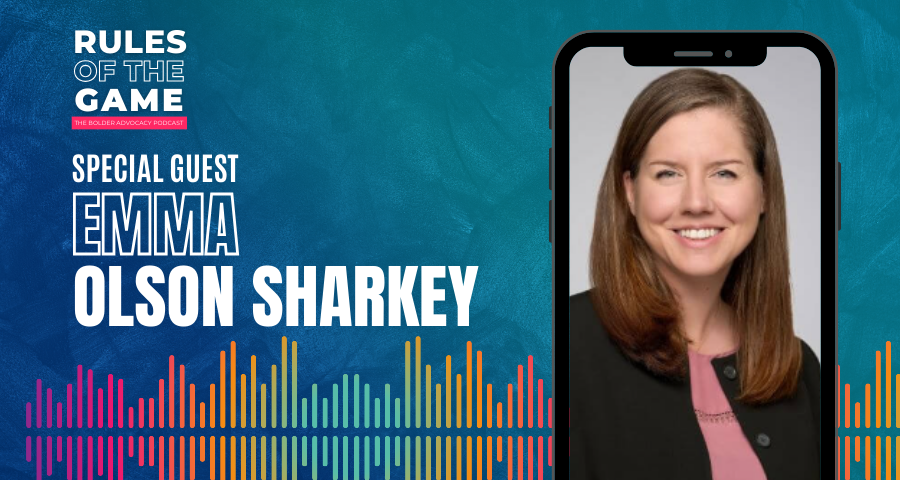Ballot Measure Insights with Emma Olson Sharkey
Topics
Ballot Measures, Election Related Activities, Influencing Legislation, Lobbying

Introduction
On this edition, we’re thrilled to welcome Emma Olson Sharkey from Elias Law Group, bringing her fresh perspective after successfully guiding clients to victory in the critical 2023 Ohio reproductive rights ballot measure fight. Emma will help shed light on the essential considerations for tax-exempt organizations before taking the plunge into a ballot measure campaign.
Our Attorneys for This Episode:
Quyen Tu Tim Mooney Emma Olson Sharkey
Shownotes
Introducing Emma
Lessons from Ohio:
- Progressives can work together to protect fundamental rights – and can be successful, even in states where conservatives otherwise control the state.
- We are seeing conservatives attack the ballot measure process at every point in the process. We need to think about what we can do to bolster our efforts from the very beginning to defend against attacks.
Two major ballot measure considerations: State campaign finance obligations and federal tax implications
- State campaign finance rules:
- Registration & reporting obligations
- Is there already a main ballot measure committee?
- Do you want to be an independent expenditure committee?
- Will you trigger registration or reporting by your planned activity?
- If so, will this include donor disclosure?
- Will you trigger registration or reporting by your planned activity?
- Disclaimer obligations (including those you might not have thought of) – both for entities themselves and top donors.
- Also, need to be careful about implicating federal campaign finance rules – even referencing federal candidates or parties in communications could create coordination issues and lead to inadvertent in-kind contributions.
- Advocacy and education outside of registration/reporting requirements
- Typically, communications to the public on the general subject addressed by the ballot measure, which do not refer directly or indirectly to the ballot measure itself, will not be regulated by state campaign finance.
- However, state laws vary so you should check state and local law to confirm.
- Advocacy and education outside of registration/reporting requirements
- Federal tax implications:
- In general, for public charities, advocating for or against ballot measures will be considered “lobbying” under federal tax law; public charities can only do an “insubstantial” amount of lobbying.
- If the organization measures its lobbying under the 501(h) expenditure test, it will need to count work on a ballot measure as direct lobbying once a petition is circulated among voters for signatures.
- If the organization measures its lobbying under the insubstantial part test, the IRS has provided less clarity; generally “influencing legislation.”
- Communications to the public on the general subject addressed by the ballot measure, which do not refer directly or indirectly to the ballot measure itself, will generally not be considered lobbying.
- Since 501(c)(3) organizations can only do an “insubstantial” amount of lobbying, many entities that engage in ballot measure work are organized as 501(c)(4) organizations, which can do unlimited lobbying under federal tax law. Also considered “primary purpose” activity.
- In general, for public charities, advocating for or against ballot measures will be considered “lobbying” under federal tax law; public charities can only do an “insubstantial” amount of lobbying.
Resources
- Bolder Advocacy Ballot Measure Toolkit
- Seize the Initiative
- Foundations and Ballot Measures
- 501(c)(3) Public Charities and Ballot Measures
- Ballot Measure Case Studies
- Ballot Measures and Public Charities: Yes, You Can Influence That Vote
- Initiating Policy Change: Circulating Ballot Initiatives in California
- Ballot Measures and Recalls: Basic Rules for 501(c)(3) Public Charities, 501(c)(4)s, and Unions
- Ballot Measure Legal Documents and Resources
- Ballot Initiative Strategy Center
- National Conference of State Legislators: State Resources
